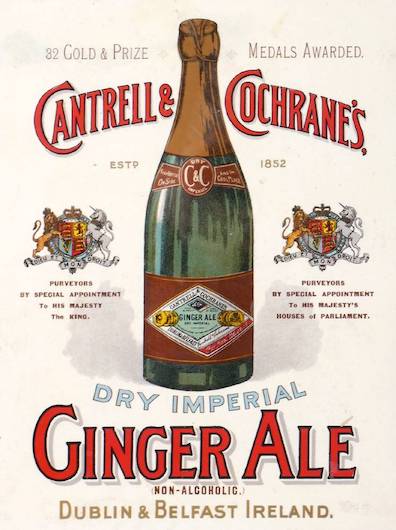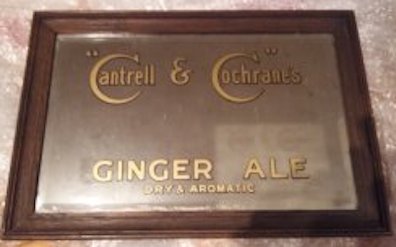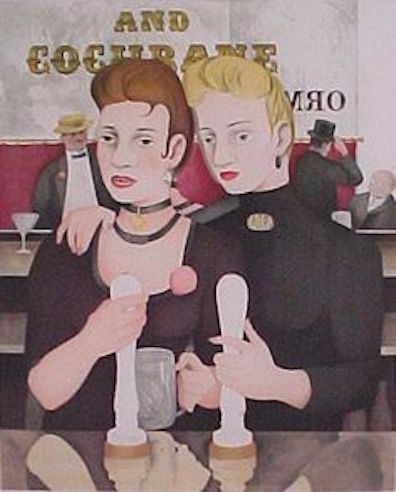In Lotus Eaters Bloom sees a poster advertising "Cantrell
and Cochrane’s Ginger Ale (Aromatic)," and later in the same
chapter he thinks of it as a "temperance beverage." This soft
drink of Irish manufacture was a fixture in
turn-of-the-century Dublin pubs, but in addition to being used
as a mixer it apparently was often consumed by itself. The
name "ginger ale," coined in the mid-19th century, points to
its origins as an alternative to alcoholic drinks.
Thomas Joseph Cantrell (1827-1909) was born in Dublin and
worked at a Belfast firm of chemists and soda water
manufacturers called Grattan & Co. that marketed the first
carbonated ginger ale. Cantrell formed the first of his own
businesses, Dyas & Cantrell, in Belfast in 1852. In 1868
he merged his business with the soft drinks business of Henry
Cochrane (1836-1904) to form Cantrell & Cochrane. By dint
of acquiring a water company, using a chemical preservative to
retard spoilage, and aggressively advertising with posters,
the company became the largest manufacturer of soft drinks in
the world by the 1880s, with large plants in Dublin and
Belfast. In 1901 it received a royal warrant from the new
king, Edward VII.
When Bloom stands on the corner of Westland Row and Great
Brunswick Street he sees a Cantrell & Cochrane's poster
adorning "the multicoloured hoardings"
at that busy intersection. Later in the chapter he thinks
about the use of wine in the Communion service: "The priest
was rinsing out the chalice: then he tossed off the dregs
smartly. Wine. Makes it more aristocratic than for example if
he drank what they are used to Guinness’s porter or some
temperance beverage Wheatley’s Dublin hop bitters or
Cantrell and Cochrane’s ginger ale (aromatic). Doesn’t
give them any of it: shew wine: only the other. Cold comfort.
Pious fraud but quite right: otherwise they’d have one old
booser worse than another coming along, cadging for a drink."
Sirens spotlights an advertising gambit still popular
in bars today, when Miss Douce, tending bar, turns toward the
bottles grouped around a showy mirror: "With grace of alacrity
towards the mirror gilt Cantrell and Cochrane’s she
turned herself. With grace she tapped a measure of gold whisky
from her crystal keg." With his typical fidelity to Joyce's
text, Richard Hamilton has captured part of such a mirror in
his well-known image of Miss Douce and Miss Kennedy grasping
beer-pulls behind the bar.



